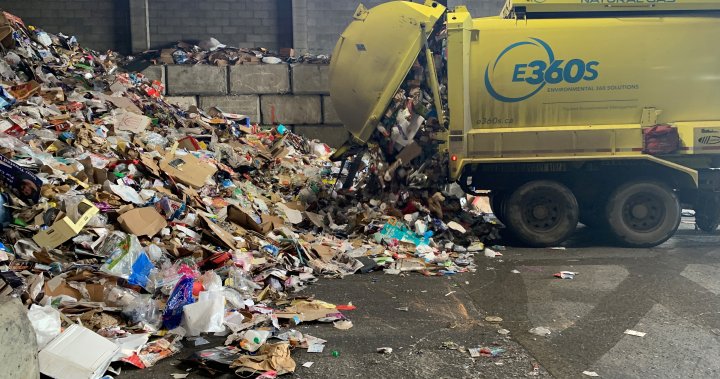Smart cameras and artificial intelligence technology have been implemented in the Kelowna, B.C., area to reduce contamination in curbside recycling bins. As a result, the Central Okanagan Regional District reported a 23 per cent reduction in contaminants thanks to new truck-mounted smart cameras with AI-based visual recognition and GPS. These cameras can identify and track unaccepted items, such as plastic bags, garbage, yard waste, and styrofoam, in real-time. The five-month pilot project, which ran from October to March, was a partnership between various organizations and resulted in the mailing of 8,777 postcards to residents. The technology was added to four recycling trucks at a cost of $68,000, half of which was covered by Recycle BC.
Additionally, the report revealed that a majority of Central Okanagan residents understand what is supposed to be placed in the blue bin. Approximately 35.6 per cent of residents changed their recycling behavior after receiving a warning postcard, with nearly half of all residents now recycling correctly. However, 6.7 per cent of households are considered “repeat offenders,” responsible for one-third of recycling contamination. The top three contaminants identified in the pilot project were flexible plastics, styrofoam, and garbage. Cynthia Coates, the RDCO’s supervisor of solid waste services, emphasized that the technology can reach more homes than manual inspections and provide targeted education where it is most needed.
Moving forward, the data collected from the pilot project will be used to help waste ambassadors target high-contamination areas through physical cart checking. This approach aims to provide residents with personalized feedback based on their actual recycling habits. Coates expressed optimism about the pilot’s results, noting that a significant percentage of residents are recycling correctly and that direct and personalized recycling education can help improve the quality of recycling. By addressing contamination issues through targeted education and feedback, the district hopes to further reduce contamination levels in curbside recycling bins and promote sustainable waste management practices in the community.
Overall, the implementation of smart cameras and artificial intelligence technology in the Kelowna area has proven to be effective in reducing recycling contamination. The partnership between the Regional District of Central Okanagan, member municipalities, Recycle BC, Environmental 360 Solutions, and Prairie Robotics has led to positive outcomes, including a 23 per cent reduction in contaminants and a significant improvement in residents’ recycling behavior. By leveraging advanced technology to identify and address contamination issues in real-time, the district has been able to enhance recycling education and promote proper recycling practices among residents. The success of the pilot project demonstrates the potential of innovative solutions in waste management and emphasizes the importance of collaboration between various stakeholders in creating sustainable and efficient recycling systems.
The findings of the pilot project also shed light on the behavior of residents in the Central Okanagan area regarding recycling practices. While a majority of residents demonstrated a good understanding of what items should go in the blue bin, a small percentage of households were identified as “repeat offenders,” contributing significantly to recycling contamination. By targeting these high-contamination areas with personalized feedback and education, waste ambassadors aim to address the root causes of contamination and encourage residents to recycle correctly. The data collected from the pilot will be critical in informing future strategies and initiatives to further improve recycling rates and reduce contamination levels in curbside recycling bins. Through a combination of technology, education, and community engagement, the Central Okanagan Regional District is working towards building a more sustainable and environmentally conscious waste management system for the benefit of all residents.


